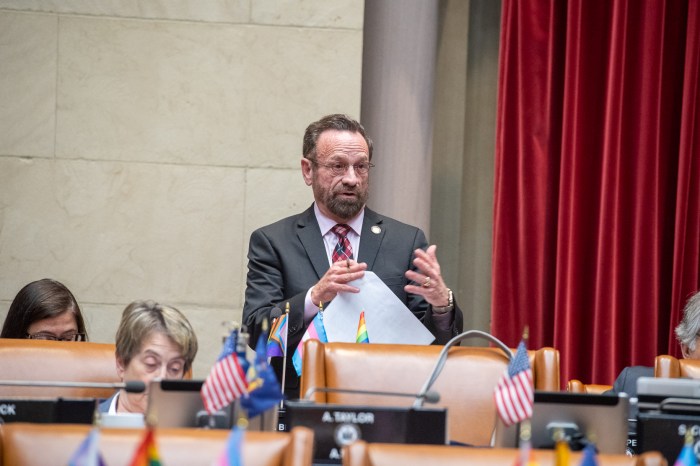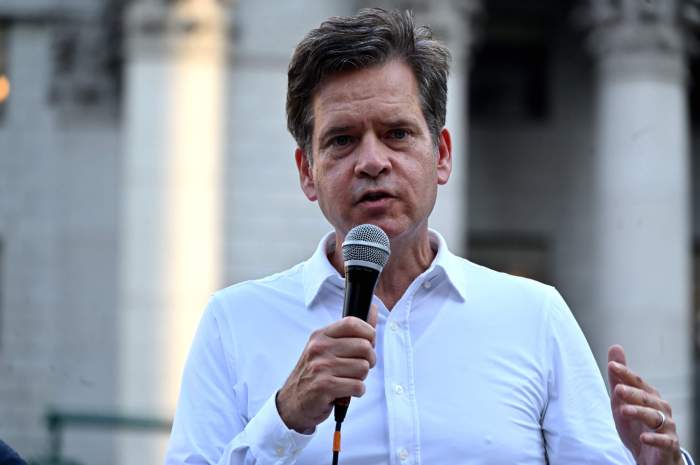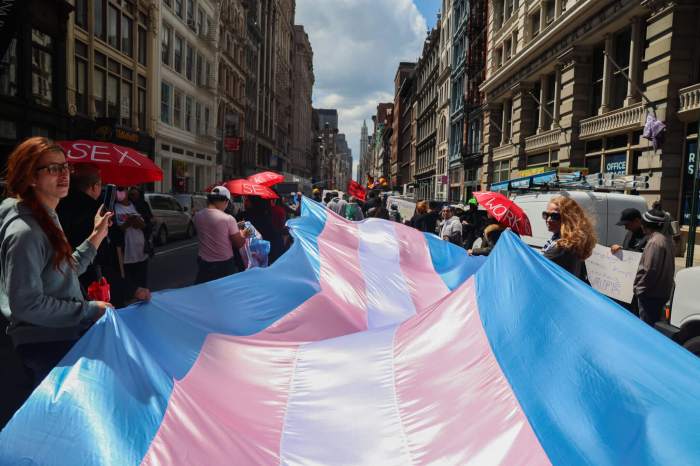Assemblyman O’Donnell, advocates vow to “fix it”
BY ANDY HUMM | The 2010 New York State anti-bullying law that is finally due to go into effect this July 1 will exempt charter schools from several of its key provisions under a regulation approved by the Board of Regents on March 19.
That has left advocates feeling sideswiped, angry, and determined to get the state to reverse course. They also feel that the State Education Department, which was given two years to implement the law, has been slow to develop the necessary regulations to enable the law to go into effect on time — though the SED insists it will be ready.
Most advocates were not even aware of the state action exempting charter schools until it was brought to their attention by Gay City News, which learned of it from a March 9 press release from Assemblyman Daniel O’Donnell, an out gay West Side Democrat who was the chief sponsor of the Dignity for All Students Act (DASA).
The regulation published on January 25 says that while DASA mandated “instruction on ‘tolerance,’ ‘respect for others,’ and ‘dignity’ shall include awareness and sensitivity to discrimination or harassment and civility in the relations of people of different races, weights, national origins, ethnic groups, religions, religious practices, mental or physical abilities, sexual orientations, genders, and sexes,” that requirement will not apply to charter schools. The Board of Regents based that conclusion on an interpretation of Education Law section 801-a, enacted in 2000, that exempted charter schools from state requirements “on civility, citizenship and character education.”
After seeing publication of the proposed regulation, O’Donnell wrote to SED Deputy Commissioner Ken Slentz saying this exemption “will create the anomalous result that students in public charter schools will have less protection from harassment and bullying than students in traditional public schools. Nothing could be further from the legislative intent.”
The Regents adopted the regulation anyway. While provisions of the act relating to “codes of conduct, policies, guidelines, training, and reporting” will apply to charter schools, Lynn Faria, interim executive director of the Empire State Pride Agenda, said exempting them from bullying prevention instruction “clearly jeopardizes the safety and well being of New York public school students.”
O’Donnell said, “I’m working to try to fix it,” but it is an open question as to whether new legislation will be required.
Dennis Tompkins, an SED spokesman, told Gay City News, “We believe charter schools should be covered” by DASA, but said its counsel interpreted the pre-existing education law as requiring that the prevention education sections in question not apply to charter schools.
Asked if it will take legislation to correct that, Tompkins responded, “Yes.”
Pauline Park, chair of the New York Association for Gender Rights Advocacy (NYAGRA), said, “As one of the few co-founding members of the original New York State DASA Coalition, I can tell you that I do not remember a single conversation or discussion within the coalition or with bill sponsors about language excluding charter schools from the full purview of the Dignity Act. That was absolutely not the intention of the lead sponsors or of the coalition when we drafted the language of the legislation.”
Donna Lieberman, executive director of the New York Civil Liberties Union, a leader in the fight for the law, wrote in an email, “Certainly the Legislature never intended to make charter school students second-class students. We are reviewing the SED’s cramped interpretation.”
Jonathan Lang, director of governmental projects and community development at the Pride Agenda and a member of the state task force on DASA’s implementation, on which Park also serves, said the panel was not made aware of the regulation exempting charter schools beforehand.
“It came out at the 11th hour,” he said. “We were all surprised.”
Lang said he asked Laura Sahr, the SED’s Dignity Act coordinator, if another regulation could be written to cover charter schools and she was “non-committal.” He said they would work with O’Donnell to make sure that “all public schools are covered by the act,” adding advocates would meet on this issue before the end of the month.
Lang was also “deeply concerned” about getting all the other necessary regulations in place by the July 1 deadline — especially since each one requires a 45-day comment period — saying they are being held up by the SED counsel’s office. He said that while they were counting on “educating stakeholders through regional workshops,” it looks as if the SED is trying to accomplish the training through webinars.
Tompkins, the SED spokesman, said, “We are really pushing hard and are on track” to make the July 1 deadline. “Our goal is to have it in place in every district in the state by September. This is an important issue for the commissioner and the Board of Regents.”
On a related issue, the integration of LGBT issues into school curricula, as has been mandated in California, is “being discussed in broad strokes” according to Tompkins. “We’re hoping Dignity will take care of a lot of these concerns.”

































